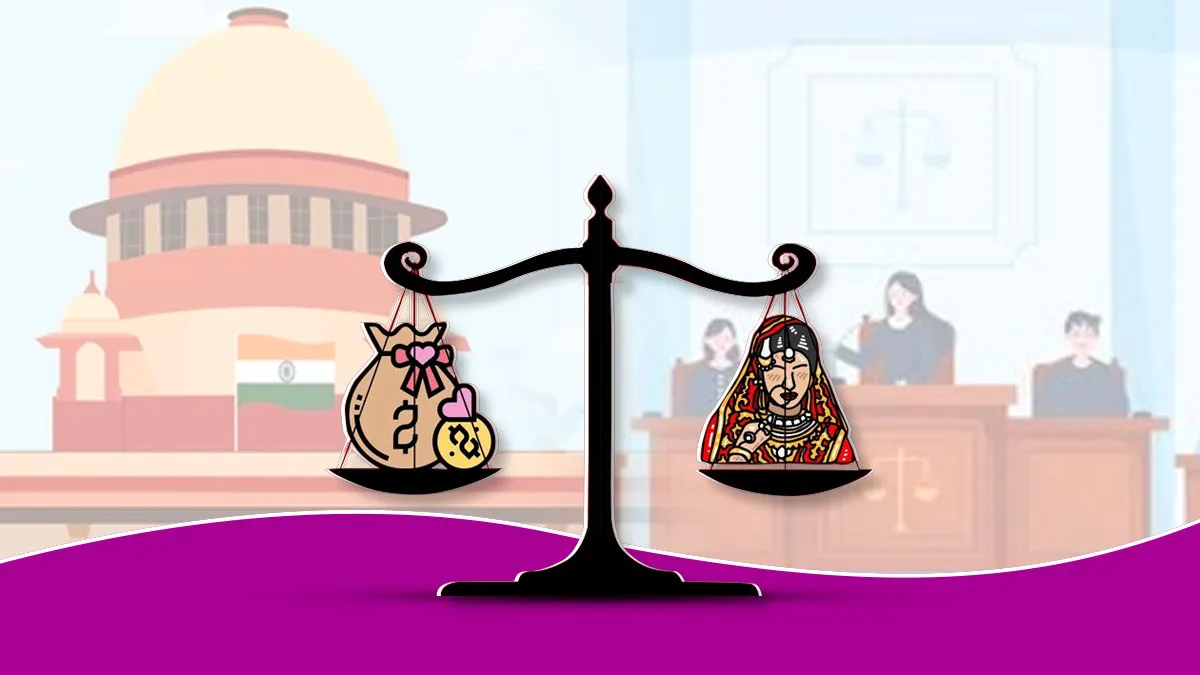
Delay In Filing 498A Doesn’t Mean No Cruelty, Says SC, Rejects Husband's Discharge Plea; Legal Expert Explains
The Supreme Court recently ruled that the absence of a complaint regarding cruelty for many years does not render a complaint under Section 498A of the Indian Penal Code invalid, rejecting a husband's plea for discharge. In this case, the wife took her own life after 12 years of marriage, and her father later filed a complaint under Section 498A and 306 IPC against the husband.
The complaint claimed that the husband had sold her gold ornaments, which were part of her streedhan, a year before her suicide and that she had been subjected to both physical and mental abuse when she asked for them back. To better understand Section 498A and its implications, we consulted legal expert Samarjit G Pattnaik, Partner at Karanjawala & Co, Delhi to explain the matter.
Supreme Court Rejects Man's Plea for Discharge In Cruelty Case
The Supreme Court rejected a husband's plea for discharge, emphasising that the absence of complaints over many years does not render a Section 498A complaint under the Indian Penal Code invalid.
According to the official judgement, the Court highlighted that the complaint contained sufficient details suggesting that the wife had reported cruelty by her husband on multiple occasions. The bench, consisting of Justice Vikram Nath and Justice Prasanna B Varale, stated, “The appellants' argument that the deceased had not made a single complaint of cruelty or harassment during twelve years of marriage cannot be sustained. Simply because she did not file a complaint for twelve years does not mean there was no cruelty or harassment.”

Can a Charge Under Section 498A IPC Stand if the Complaint is Filed After the Wife's Death?
Pattnaik affirmed the Supreme Court's recent stance, stating that a delay in filing a complaint for cruelty, mental harassment, and dowry demands does not automatically make a complaint under Section 498A of the IPC inadmissible. However he added, “While complaints filed after a long period of marriage typically between 8-12 years may be considered belated and subjected to closer scrutiny before an FIR is registered or action is taken, complaints under Section 498A can sometimes be filed 15-20 years or more after the marriage.” The length of the marriage does not diminish the relevance or credibility of the complaint.
1
2
3
4
Legal Options for a Wife if Her Streedhan is Sold Without Consent and Its Impact on Cruelty Charges Under Section 498A IPC
Streedhan refers to the property a wife receives during marriage, typically in the form of gifts from her family and relatives. The wife is the sole owner of this property, and neither the husband nor his family members have any control over it. Pattnaik affirmed and said "A wife has full claim and right over her streedhan. It is the husband's obligation and moral duty to restore it to the wife if she claims it."
He further explained that if the streedhan is not returned, a wife has several legal options, including filing a complaint under Section 406 IPC for criminal breach of trust and Section 498A IPC if the issue relates to cruelty and mental harassment, or filing a complaint with the National Commission for Women.
Don't Miss: Abused For Dowry, Woman In Hyderabad Dies By Suicide Along With Her Twins; Here Is What The Law Says

Does Delay In Filing A Complaint Under Section 498A IPC Affect The Credibility Of The Allegation?
Advocate Pattnaik explained that in cases where a wife has committed suicide or died under mysterious circumstances, and a case for abetment of suicide under Section 306 IPC is filed, the prosecution must prove the case in two ways: through direct evidence and circumstantial evidence.
Advocate Samarjit said, “Since direct testimony from the wife is unavailable, the prosecution relies on other direct evidence such as medical reports, testimony from close family members, and previous complaints. Additionally, circumstantial evidence plays a crucial role, including communication between the deceased wife and her relatives or friends, indicating signs of cruelty, harassment, and torture. Evidence of past medical issues, previous suicide attempts, and the behavioural patterns of the husband and his family members can also help establish the charge of abetment of suicide.”
Keep reading Herzindagi for more such stories.
Credits: Freepik
Also watch this video
Herzindagi video
1
2
3
4